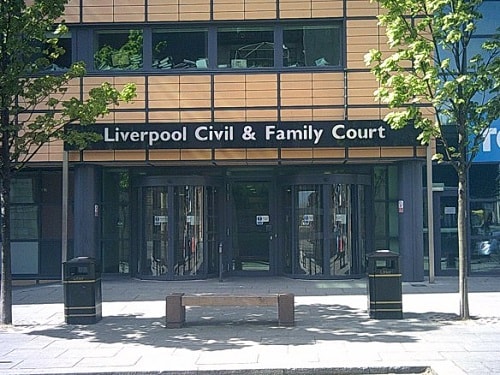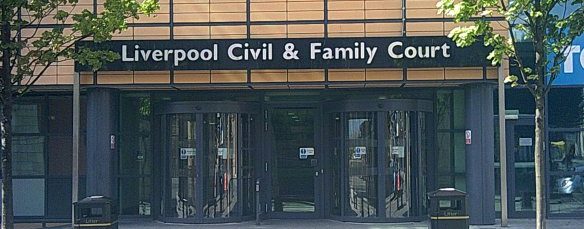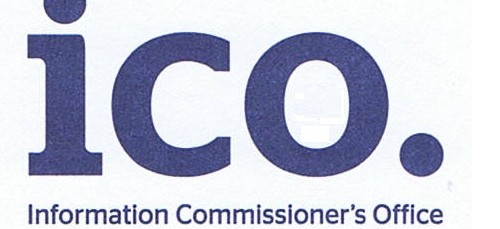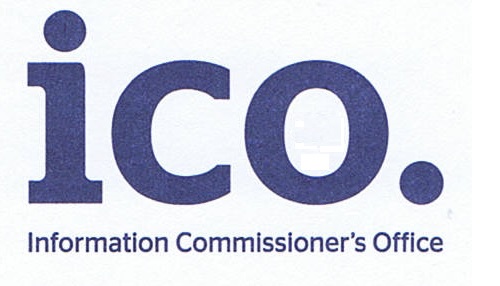What was the First-tier Tribunal decision (EA/2016/0033) on whether Wirral Council should have withheld some of the minutes of the Headteachers’ and Teachers’ Joint Consultative Committee meeting held on the 29th March 2013 in response to a Freedom of Information request?

I will start by making a declaration of interest as I was the Appellant in this case heard in June 2016 over in Liverpool.
I finally received a copy of the First-tier Tribunal’s decision in the case involving Wirral Council (EA/2016/0033).
Part of it is dated the 14th July 2016, but for some reason it’s taken nearly two months to send out (presumably because of the summer holidays).
I’ve linked from the decision to the original ICO decision notice FS50596346 published on ICO’s website as it makes more sense in reading both the decision in the First-tier Tribunal case and the ICO decision notice that it’s an appeal from at the same time. I’ve also linked to the edited version of the minutes released by Wirral Council around 3 years after the FOI request was first made (these minutes have been previously published on this blog).
I’ve included in this version the extra line, “On the subject of Acre Lane, David Armstrong is leading an assets review, which includes identifying a new location for the services currently provided at Acre Lane.” which was disclosed during the hearing itself and was part of the redacted part of the minutes.
At the time of writing this decision is not yet published on the First-tier Tribunal’s website but should be in the near future. There may be some minor formatting changes between the version below and the printed version (due to the differences between HTML and the printed page) although the text remains the same.
Missing from the version below is the Royal Coat of Arms on the first page (which I don’t have permission to reproduce).
The below decision (and reasons for it) were received from the First-tier Tribunal by email as I was an Appellant in the case. The other parties were the Information Commissioner’s Office (ICO) (First Respondent) and Wirral Metropolitan Borough Council (2nd Respondent).
ON APPEAL FROM:
The Information Commissioner’s Decision Notice No:
FS50596346
Dated: 25th. January, 2016
Appeal No. EA/2016/0033
Appellant: John Michael Brace (“JMB”)
First Respondent: The Information Commissioner (“the ICO”)
Second Respondent: Wirral Metropolitan Borough Council (“WMBC”)
Before
David Farrer Q.C.
Judge
and
Michael Hake
and
Malcolm Clarke
Tribunal Members
Date of Decision: 7th. Sept, 2016
The appellant appeared in person
The ICO did not attend but made written submissions
Robin Hopkins appeared on behalf of WMBC
Subject matter:
FOIA S. 36(1)(b) and 36(2)(b)(i) and (ii)
Whether the public interest in withholding the requested information outweighed the public interest in its disclosure.
DECISION OF THE FIRST-TIER TRIBUNAL
All parties having agreed that the exemption is engaged, the Tribunal finds that the public interest in withholding such of the requested information as remained in dispute at the hearing outweighs the public interest in its disclosure.
The appeal is therefore dismissed.
Dated this 14th. day of July, 2016
David Farrer Q.C.
Judge [Signed on original]
Relevant Statutory Provisions
(ii) the free and frank exchange of views for the purpose of deliberation . . . . .
Abbreviations
In addition to those indicated above, the following abbreviations are used in this ruling –
The DN The Decision Notice of the ICO.
The EIR The Environmental Information Regulations 2004
The JCC The Headteachers and Teachers Joint Consultative Committee.
REASONS FOR DECISION
The Background
- WMBC is a Metropolitan Borough Council responsible for the education provided by a large number of primary and secondary schools. Like many other local authorities, it is permanently involved in inevitably controversial debates and decisions on educational issues, which arouse the concerns of elected members, teachers and head teachers, parents and the wider general public.
- Elected members exercise the extensive powers conferred on public authorities such as WMBC in the field of local education. Public consultation with the different interest groups identified in §1 is, however, essential to the successful functioning of any education authority. For that purpose, WMBC holds a Schools Forum at which the views of all those groups can be aired publicly. It also convenes, once per school term, the JCC, at which elected members discuss with representatives of head teachers’ and teachers’, trades unions matters of current concern. WMBC officers attend. The JCC sits in private and its minutes are circulated only to JCC members.
- JMB is a local resident and elector with a keen interest in the governance and the efficient running of WMBC which he pursues using the Hash tag “Scarlet Pimpernel”. On 29th. March, 2013 he issued a request to WMBC for the minutes of previous meetings of twenty – six panels and committees, including “15. Headteachers and Teachers JCC”. It was refused, first by reference to FOIA s.12 (cost of compliance exceeding appropriate limit) and later s.14 (vexatious requests), varied to EIR 12(4)(b).
- The ICO’s decision, dated 8th. September, 2014, so far as material to this appeal, was that these exemptions or exceptions could not be relied on and that WMBC must either provide the requested information or issue a response which did not rely on the rejected grounds for refusal.
- As regards items 15, 18, 19 and 26, WMBC again refused in a response dated 3rd. September, 2015, citing, as to 15, 18 and 19, the exemption enacted in s.36(2)(b)(i) and (ii). The qualified person whose opinion was obtained was Mr. Surjit Tour, WMBC’s principal legal officer and Monitoring Officer, who was consulted as to 15, 18 and 19 on a number of occasions during August and September, 2014 and whose opinion is dated 31st. October, 2014. The details of that process are immaterial, since JMB now accepts that s.36(2)(b) is engaged.
- Section 36 provides a qualified exemption, so that, where it is engaged, the question to be determined is whether the public interest in withholding the information is shown to be greater than the public interest in disclosure.
- Item 26 was disclosed during the ICO’s investigation. He ordered disclosure of items 18 and 19. Disagreements as to the redaction of names on those documents were very sensibly resolved before the hearing of this appeal. As to item 15, the minutes of a JCC meeting on 13th. February, 2013, the ICO upheld WMBC’s reliance on s.36(2)(b) and ruled that the public interest favoured maintaining that exemption. JMB appealed to the Tribunal.
- Whilst WMBC’s assessment of these requests may have been initially flawed, Mr. Tour conducted a review of the public interest resulting in disclosure to JMB, on 19th. May, 2016, of an edited version of the relevant JCC minutes of the meeting on 28th. February, 2013, which was just a month before the request. Those minutes were still in draft form at the date of the request. There was no evidence that their final substance differed from the draft in any material respect. Such disclosure was made without prejudice to the contention that a correct view of the balance of public interests had been taken. Disclosure went further at the hearing when the subject matter of the excised portions of the minutes was revealed.
- The welcome result of these developments is that the scope of this appeal was greatly narrowed. The Tribunal is concerned with the public interest in withholding or disclosing identified passages from a single set of minutes, whilst having regard to the broader issue whether there are general arguments of principle for either course.
- Mr. Tour and Mr. Andrew Roberts, a senior financial officer and representative of the Children and Young Persons Department on the JCC gave evidence on behalf of WMBC.
- Mr. Tour stated that WMBC’s principal concern was the inhibition of full and frank discussion in the JCC (s.36(2)(b)(ii)). The topics discussed were generally major contentious strategic educational issues on which members of the JCC, approaching them from very different positions, held strong diverging views. It was essential that all concerned, whether elected members or union representatives, should be assured of confidentiality. They participated with that expectation. The principal function of the JCC was to inform WMBC of current concerns among teachers and within their unions. It valued the blunt candour of many contributions, which was not replicated in the Schools Forum, where all participants knew that their words would or might be reported. The disputed extracts from the minutes in question contained robust and candid expressions of opinion, which might not emerge from a meeting known to be on the public record. Council members also expressed vigorous political opinions in the JCC.
- As to the modification of WMBC’s position on the minutes, Mr. Tour explained that, a further detailed examination of the minutes, over a period of time, enabled him to take a more liberal view of the public interest in withholding material. The passage of eighteen months was also a factor. However, the withheld passages contained emphatic expressions of opinion which deserved the maintenance of confidentiality.
- Mr. Roberts spoke from regular experience of JCC meetings. There was a shared understanding of confidentiality. The main input was generally from trades union representatives. He confirmed the circulation of the minutes, which did not go to Cabinet. He could not say whether they were circulated within the unions. He stated that they were not marked “confidential”.
- The topics in recent years have included such controversial issues as the Academy programme, teacher retention, funding of schools and teachers’ pay.
- The public interest in disclosure was plain. The promotion of high standards in maintained schools and decisions as to their conversion into academies were issues of fundamental importance to the community. Transparency was always a vital interest in the conduct of public affairs but nowhere more so than in education, one of the key functions of a local authority.
- Any representative of a teaching union should be accountable to his/her members for opinions expressed or demands made at the JCC, the meeting place for teachers and local administrators of education. Likewise, council members should be answerable to their constituents for what they said in this kind of forum. There was no justification for off – the – record exchanges on critical issues between teachers’ representatives and elected members or senior management paid by WMBC.
- The absence of any confidentiality marking on the minutes was significant.
- Other local authorities, said JMB, published such exchanges, which were evidence of good industrial relations.
- The public interest in confidentiality for these meetings was correspondingly slight or non – existent. If union members or councillors were really concerned at the prospect of disclosure of their contributions at the JCC, it was odd that no attempt had been made to adduce direct evidence from them. If there was, indeed, an expectation of confidentiality, it was unjustified and should be removed.
- There was no sound reason for members of the JCC to flinch from candour if they knew their words might be recorded in a published document.
- Confidentiality is essential if the JCC is to function properly. Its value lies in the outspoken expression of views on important and sensitive topics, whether by teachers/ representatives or by elected members. The feedback to local and national government as to teachers’ concerns and sentiment, on an unattributable basis, is of considerable importance.
- The requested information may grow less sensitive with the passage of time – witness the revision of WMBC’s position on disclosure. The timing of this request was significant, however. It was made immediately after the relevant meeting and before the requested minutes had even been approved. The “safe space” argument is compelling in this case.
- As indicated above, the sole issue for determination by the Tribunal is the balance of public interests, applying the test cited in §6 as related to this appeal in §9.
- It is accepted that the exemption provided by s.36(2)(b) is engaged. Having regard to all the evidence, we conclude that its engagement is dependent on (ii), we conclude that its engagement is dependent on “the inhibition of the free and frank exchange of views for the purpose of deliberation”
because, as indicated in §27, we do not think that the JCC is an advisory body. - The public has an obvious interest in knowing how decisions are reached or what advice is given on matters affecting every stage of education, whatever the age of the student. An important issue in this appeal is, therefore, the purpose of the JCC.
- It is not a forum for general public debate on educational issues. That function is performed by the aptly named Schools Forum, where the expression of opinions receives appropriate publicity. We were told and we accept that contributions from teachers and councillors tend to be more cautious than in the JCC.
- More importantly, the JCC is not an advisory still less a decision – making body. Its function is to permit blunt and fearless exchanges of view, often controversial and sometimes unpredictable. Such exchanges may enable council officers present to warn Cabinet, or possibly the Department of Education, of tensions and strong feelings on important questions such as the role of Academies or the morale of the local teaching profession and to do so without reference to the particular contribution of a member of the JCC. To consult is not to seek advice. The WMBC witnesses stressed the importance to a local education authority of this channel of communication. The Tribunal agrees with their assessment.
- JMB argued that any expression of opinion by an elected member of an authority should be accessible to the electorate and that a similar principle applies to the relationship between a trades union representative and those whose interests he/she serves. That may be a reasonable proposition where the member or representative is participating in a decision or in the tendering of formal advice or recommendations intended to influence directly a specific decision. We find that different considerations apply to a consultative committee, whose function is to promote a debate without constraints.
- The absence of direct evidence from JCC members as to the expectation of confidentiality is a significant but not a decisive omission. We infer from the evidence of Mr. Roberts and Mr. Tour and from our own experience that such an expectation exists. It is a feature of many bodies in which potentially conflicting interests are convened for the purpose of clarifying their differences and identifying any common ground.
- The absence of confidentiality markings would be relevant to questions of the public interest if, but only if, it demonstrated that WMBC’s own practice was inconsistent with its claim that there was a strong public interest in the confidentiality of JCC proceedings. We are inclined to view this rather as an administrative oversight than a reflection of the true expectations of JCC members.
- The restricted circulation of minutes is consistent with confidentiality. Plainly, WMBC cannot control their disclosure by a member to fellow teachers but that does not indicate that it has no concerns over publicity.
- These are considerations which apply to JCC minutes generally and the Tribunal acknowledges that it must have particular regard to the specific information withheld from the set of minutes with which it is concerned.
- We have already observed that the request was made at a time when the minutes were still in unapproved draft form. Although WMBC did not appear to attach much weight to this fact, draft minutes are generally more sensitive than the final approved version. However, this is not a decisive factor in our decision.
- One redaction relates to the personal data of a WMBC employee. It is accepted that such data are properly withheld for reasons unrelated to s.36(2).
- The other redactions involve firm expressions of opinion and closely related responses on academies, advanced skills teachers, and teachers’ pay and two short references to future changes which would require consultation. In the Tribunal’s opinion, adopting the approach already discussed, they are properly withheld. We do not consider that a Closed Annex is required to deal with them further.
- In summary, the Tribunal recognizes the particular importance of transparency in the process of policy – making, locally as much as nationally, in such a vital service as education.
- However, we do not regard the function of the JCC as a part of that process, save in the very indirect sense already indicated.
- On the other hand, we see a real public value in unconstrained consultation designed to get to the core concerns of teachers, parents and elected members. We accept that the price to be paid for such an airing of opinion is confidentiality.
- We acknowledge some public interest in disclosure of the discussions of even a consultative committee but judge that they are clearly outweighed by the interest in maintaining the function of such as the JCC. Absent confidentiality, we conclude that the JCC would either disappear or be reduced to a largely worthless role.
- This appeal is therefore dismissed.
- Our decision is unanimous.
The request
The DN
The Appeal
The evidence
JMB’s case
The case for WMBC
The Reasons for our decision
Conclusion
David Farrer Q.C.
Tribunal Judge,
7th September, 2016
If you click on any of the buttons below, you’ll be doing me a favour by sharing this article with other people.



